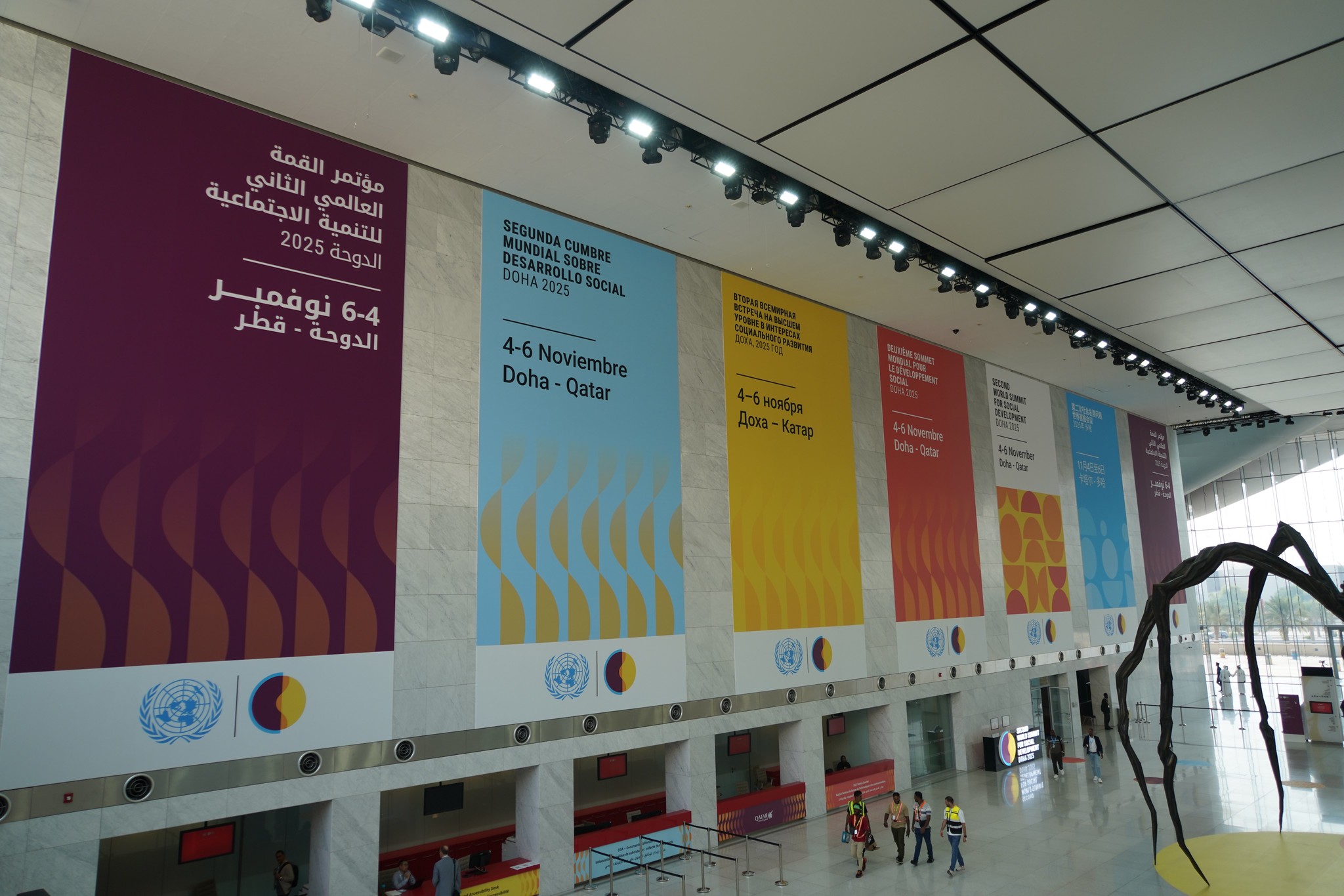At the Second World Summit for Social Development (WSSD2), held in Doha from 4–6 November 2025, Alliance 8.7 proudly participated in a high-level Solution Session titled “Advancing Social Development through Fundamental Principles and Rights at Work.” Convened by the International Labour Organization (ILO) alongside the governments of Barbados, Germany, and Uzbekistan, the session explored how the ILO’s Declaration on Fundamental Principles and Rights at Work (FPRW) can serve as a catalyst for inclusive and sustainable development.
Representing Alliance 8.7, Her Excellency Claudia Fuentes Julio, Chair of the Alliance and Permanent Representative of Chile to the UN in Geneva, delivered a powerful intervention that underscored the urgency of eliminating forced labour, child labour, modern slavery, and human trafficking — the core mission of SDG Target 8.7.
A global call to action
In her remarks, H.E. Fuentes Julio highlighted the scale of the challenge: 138 million children are still engaged in child labour, and 27.6 million people are trapped in forced labour. Migrant workers, she noted, are three times more likely to experience forced labour than others.
She stressed the importance of the FPRW framework, which combines legal obligations with a moral imperative, and called for stronger institutions, social dialogue, and collective accountability.
“Ending child labour, forced labour and human trafficking is not only a development priority,” she said. “It is a test of our shared humanity.”
H.E. Fuentes Julio shared examples of how Alliance 8.7 is translating cooperation into action. Chile, for instance, is implementing its’ second national SDG 8.7 Roadmap, fostering a whole-of-government approach and interconnecting platforms to better register and address cases. Uganda has institutionalised enforcement units to strengthen legal accountability. Nepal has aligned national policies through inclusive coordination mechanisms. In Kenya and the Democratic Republic of the Congo, survivors of exploitation are actively shaping national roadmaps, ensuring that lived experience informs policy.
These country-led innovations demonstrate the value of Alliance 8.7 as a platform for mutual learning and South–South cooperation. The Chair highlighted the strong collaboration between Alliance 8.7 and the Regional Initiative Latin America and the Caribbean Free of Child Labour, noting that such cross-regional exchanges foster innovative solutions and accelerate progress.
As the global community prepares for the Sixth Global Conference on the Elimination of Child Labour in Morocco in 2026, Alliance 8.7 remains committed to turning commitments into tangible outcomes. The ILO’s Declaration provides the foundation; Alliance 8.7 offers the partnership to act.
By uniting governments, employers, workers, international and regional organizations, civil society, academia, and survivors, Alliance 8.7 is helping to make social justice the measure of our success — ensuring that every child, every worker, and every enterprise benefits from a fair and sustainable world of work.

